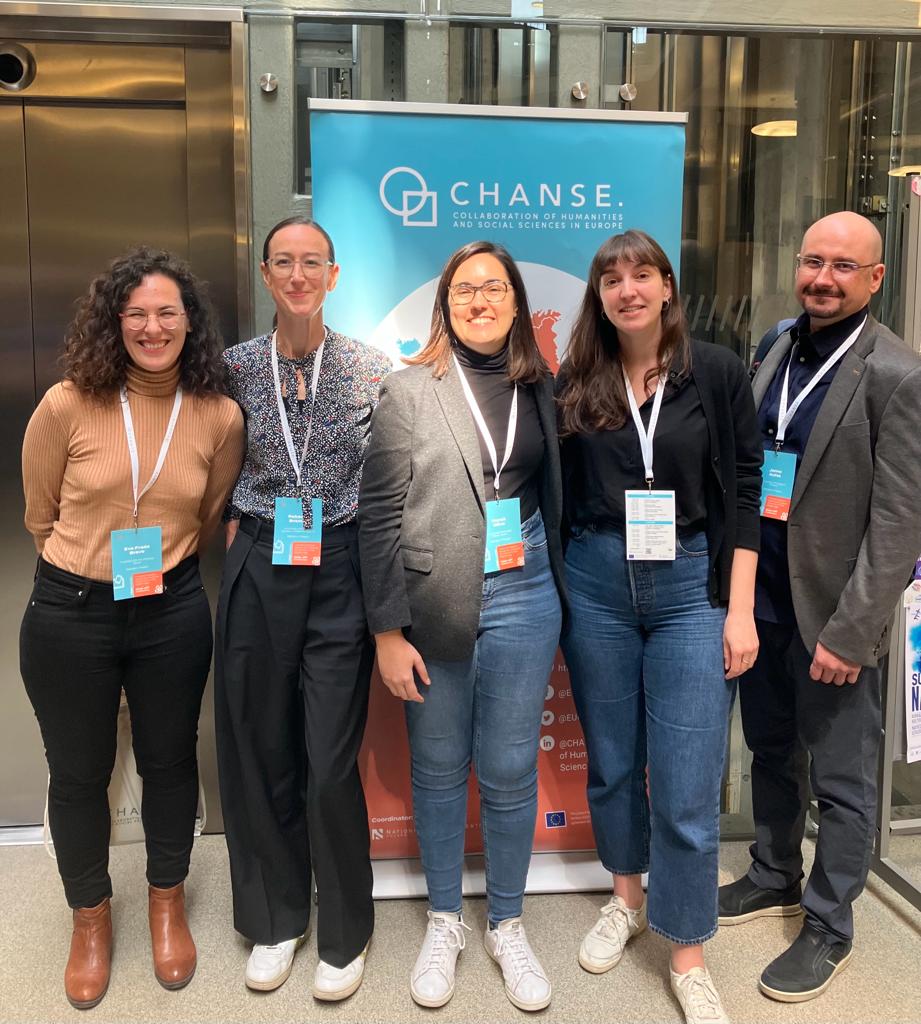
NEWS


NEWS
Published
Our latest blog is from Milana Cergic (Postdoctoral Researcher at the University of Mainz) who talks about her time at the CHANSE Kick-off Conference held in Tallinn, Estonia on 1-2 June 2023.

Sitting in the lobby in Tallinn, after a day at our CHANSE kick off conference, I glance at the muted TV that shows a boy lying in a bed and talking. On the first look, this scene looks like a documentary. Underneath this picture are three numbers, each displaying a sum of 5, 10 or 25 euros. Next to these numbers is a large sum of money that goes up every few seconds, making me realize that this is a call for donations. This is one more example of how the digital interacts with forms of redistribution.
Tallinn was the perfect location to host a kick off conference on humanities and the digital. Estonia is renowned for being a hub for innovative tech companies, many of them known worldwide. Its ‘e-government’ system, where almost all administrative tasks are conducted online, is a model for other European countries. The pervasive influence of digitalization can be observed in multiple facets of everyday life: a fleet of electric scooters waits to be used, the check-in process in some hotels can entirely be done on computers, one seldom pays in cash, and small delivery robots drive on sidewalks, stopping at red lights and waiting for cars to pass.
During the conference, we had the opportunity to learn about all the 26 projects that are funded by CHANSE and question how the digital shapes social life. The researchers are examining, for example, how death is digitalised or how technologies shape the communication in the management of epidemics outbreaks. In smaller sessions, we discussed interdisciplinary mindsets, methodologies, and possibilities for cooperation with other participants. One of the conference’s keynote speakers, the anthropologist Taras Fedirko, reminded us how digital redistribution forms entered the sphere of war, describing how Ukrainian foundations use digital fundraising campaigns to collect funds for drones.
In this highly digitalized environment the question arises: how can we take into account various degrees of digitalization within our respective research contexts? The process of redistribution, much like digitalization itself, is often characterized by inequality. Preliminary research on redistributive practices during the Covid crisis in Montenegro shows that not only was the state perceived as absent in its redistributive efforts (contrary to the Swiss case) but there were also limited online forms of redistribution (contrary to what one saw in Britain). Instead, privileged individuals, public servants, businessmen and small companies were expected to donate portions of their salaries or profits to the state. These contributions were then redistributed to combat the pandemic. The digital played a role in a ‘simpler’ form: citizens were urged to give small donations via SMS. This form of ‘vernacular humanitarianism’ is widespread in the Balkans, as a neighbourly and situated form of solidarity amongst people that is used to deal with an absent state and economic insecurities. In-depth empirical research in the semi-periphery will contribute to the understanding of imaginaries of redistribution but it will also show which forms of the digital are used, refused, and adapted to the local context. Finally, these two examples, that both represent countries on semi-peripheries, lead to a broader question: does the degree of digitalization strengthen the claim to properly belong to Europe?